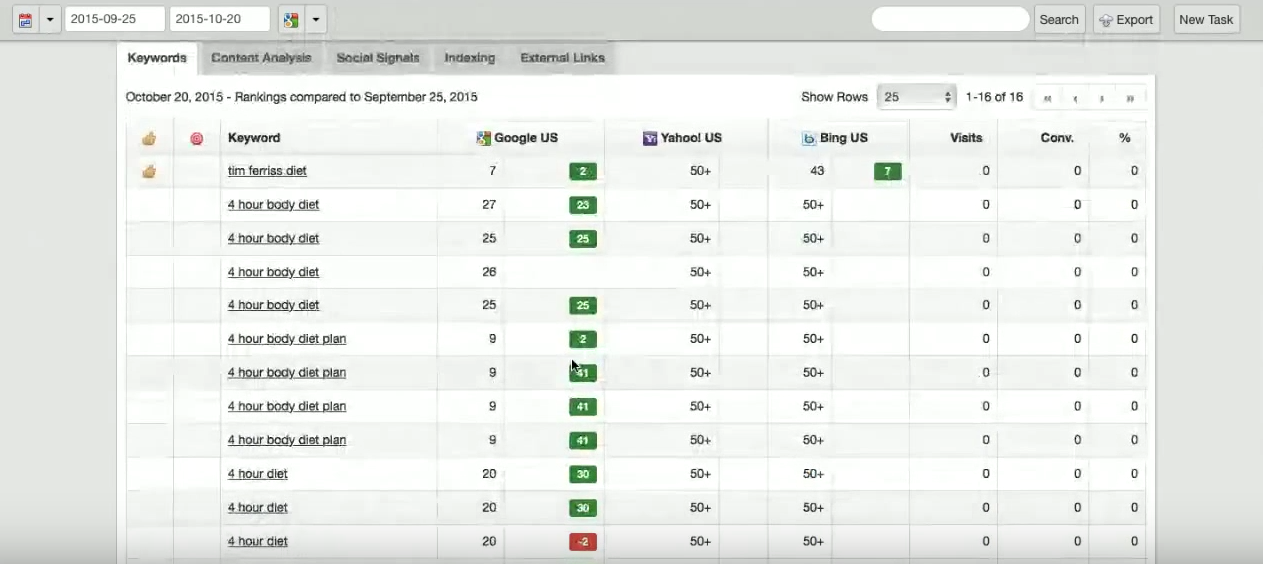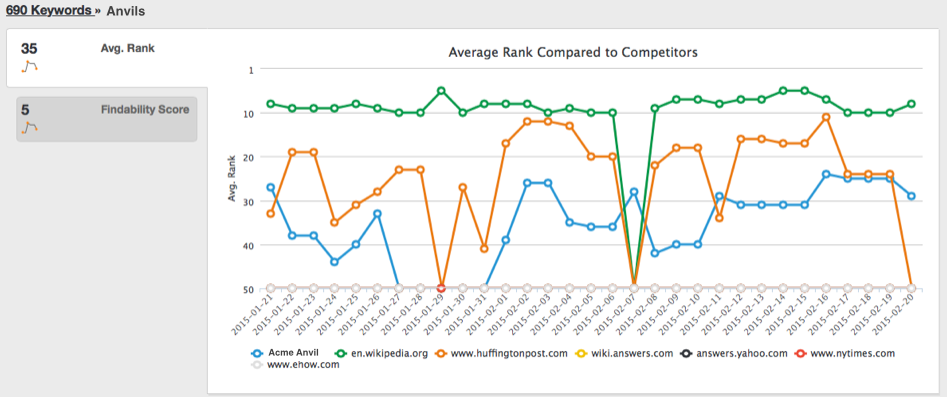I was recently talking to a digital marketer about the challenges and trends in search and SEO when he stated, “I don’t do SEO” Really? Why not? What is it about SEO that has earned it a reputation below the status of senior staff?
I had to concede that unless you’re working on creating content or optimizing the website, you may not be involved in the daily care and feeding of the SEO monster, but you should at least be aware of the challenges and trends associated with SEO, search, and content marketing if you want your brand to thrive beyond paying for advertising and media for every piece of content until the end of time. Since organic search is still one of the top ways to reach your audience, organic search and SEO should be a high priority in every organization.
Why Should I Bother with SEO?
In its early years, search engine optimization developed a reputation for being a sneaky practice and rightfully so, in some cases. However, search engines have worked to ensure that the days of keyword stuffing, cloaking, and spamdexing are mostly dead and as a result, SEO is no longer a single tactic implemented at the end of the marketing content process. No matter where you fall in your brand’s marketing organizational chart, you should consider SEO as part of your function.

Getting found by your audiences, converting viewers to customers, and turning customers into evangelists require that search engine optimization and search marketing are considerations at every stage of the marketing process. If you’re only thinking of search engine optimization as a way to improve individual content, you may be missing out on opportunities to implement better strategy throughout every phase of your marketing. SEO and search data can have a major impact on marketing success and provide your team with performance insights and analytics to better inform your efforts.
You can use search data to inform:
- Situation analysis
- Strategic planning
- Content creation
- Content optimization
- Campaign analysis
Search data is the building block to any marketing effort. In the situation analysis phase, search data can help you determine what existing content is working well for you and what content needs to be refreshed or retired. Using the keywords you’re already tracking and discovering new keywords your audiences are using during search queries about your product or service can help you decide where there are holes in your content library. Using search data, you can get insights into your competitors and discover all the content that’s competing for audience attention.
Once you know what’s working for you and for your competitors, you’re ready to employ search data in your strategic planning process. At this stage, every marketing and search function should be collaborating to make sure the messages for social, organic, and paid efforts align with the keywords and topics your audiences are already looking for. The information collected by your SEO department plays a key role in deciding on campaign messages and brand position.
Of course, content creation and content optimization are natural areas to integrate good SEO practices and things like keyword discovery and other search data. Use insights to decide what content to create, which medium to use to create it, and which channels to distribute each type of content.
Throughout the campaign, monitor how messages are resonating with audiences and make tweaks to content to improve findability. If you find your audiences are responding more positively to video content, you may want to add more short videos to your editorial calendar. If you’ve written a blog post that isn’t performing as well as you thought it should, check to make sure it’s optimized for SEO and review it for trending topics and keywords as identified through your search data.
In the final analysis, your search data will show you what elements of your marketing efforts were most effective and which things need to be changed as you move into your next campaign.
SEO and content marketing are two closely related functions and one cannot survive without the other. But the relevancy of search data has farther-reaching influences than just the content you create for your site. Search data should inform all messaging for all marketing and public relations efforts, both organic and paid.
Use SEO and search data to inform all marketing efforts, including:
- Advertising
- Social media
- Content marketing
- Lead generation
- Demand generation
Understanding what keywords are the best converters for you can help you spend less on your paid efforts while getting higher click through rates and better sales leads. Using the most relevant, specific terms and phrases that your audiences are already using will make all your efforts more successful.
So, why should you bother with SEO? Because the search data you can gather and the resulting analytics and insights you get could be the difference between brand findability and brand anonymity. If you aren’t constantly looking at what’s working and what’s not and optimizing both older and new content, you may be missing out on opportunities to attract and convert your key audiences.
How do SEO trends affect overall brand success?
The constantly sifting sands of search engine algorithms and the rapidly changing demands and habits of audiences mean that marketers need to be constantly poised to make adjustments. If you’re unaware of the changes taking place, you may not be delivering the best user experience and you may be missing out on conversion opportunities.

The biggest trend to be aware of is that 93% of online research begins with search engines. The emphasis on search for potential customers makes SEO a practice everyone who should, “do” at one level or another.
Recent trends in search engine optimization that may change your marketing strategies moving forward include:
- Rising popularity of video content in search
- Mobile optimization is required
- Increased use of voice search
- Content needs to include conversational language
- Content needs to include local colloquialisms
- Social media continues to affect site authority
- Content curation and aggregation increase in importance
- Local SEO takes on importance beyond mom and pop shops
All of these trends point to one conclusion. SEO is not – and never will be – business as usual. The trends and changes associated with search engine optimization have far-reaching implications that will affect how marketers do business now and in the future.
Who does SEO?
Upper level marketers are probably not the people looking at SEO recommendations and optimizing website content and inbound and outbound links. However, they should be aware of how the site content is ranking and what links are effective for increasing site authority, traffic, and ultimately conversions. They should also know how the brand is ranking compared to competitors, know everyone who is competing with the company for audience attention and what competitor content is being found for the keywords they care about.

In any organization there may be one or more people who are involved in the technical side of SEO. Whether it’s an actual search engine optimization department or position, web designer, or the IT department; most organizations have someone looking out for the SEO health. In very small companies, the job of SEO may fall on the marketing department. If no one in your organization is doing search engine optimization, it might be time to redirect some of your resources.
Of course, having the right tools for your needs makes all this so much easier. With the right tools, the workflow between marketing and SEO can be so seamless that marketers may feel like they don’t do SEO, when in fact they are considering search engine optimization and search insights in every phase of their efforts.
If your organization is using a variety of tools for every individual marketing and SEO function, you may feel like your efforts are disconnected from overall brand optimization efforts. Using an enterprise-grade SEO and marketing tool can help your organization streamline the workflow between search engine optimization and marketing and provide insights that can be used by both.
Some benefits of using an enterprise SEO tool include the ability to:
- Track a larger number of keywords
- Monitor multiple websites
- Track multiple pages
- Analyze and discover competitor behavior
- Receive detailed content and SEO recommendations
- Group keywords and content to monitor campaigns, geographies, etc.
- Get local search data
- Create custom dashboards and reports
- Receive and send automated reports
- Improve marketing and SEO workflow
- Get projections and forecasts
- Monitor all marketing channels, including social media
- Get granular data on keywords, content, and competitors
- Compare search engine and device engagement
- More
While there are many tools out there that provide one or more of these features, to get all the data in one place you will need to invest in an enterprise level platform. If you’re ready to do more with your website and achieve more with our marketing efforts, give us a shout and we’ll show you GinzaMetrics’ enterprise SEO and marketing platform.

